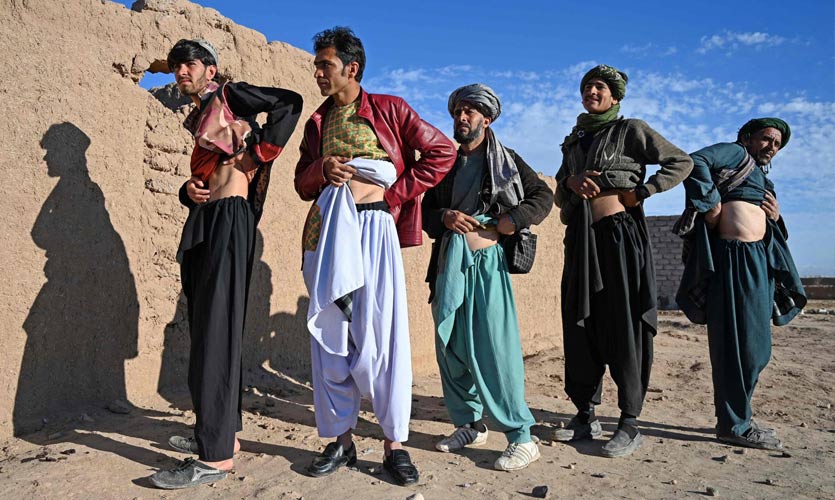According to recent reports, parents in Afghanistan are sacrificing their bodies in order to make enough money to feed their children, as extreme hunger continues to grip the country. Herat, a city located in western Afghanistan, has become so widely known for the practice of selling kidneys to earn money, that one of its settlements is bleakly known as “one kidney village”.
Mohamed Bassir Osmani, a surgeon at one of the two hospitals where most of Herat’s transplants are performed, confirmed that “consent” is key. “We take written consent and a video recording from them – especially from the donor,” he explained. He added that hundreds of surgeries have been performed in Herat in the past five years. “We have never investigated where the patient or donor comes from, or how. It’s not our job”, he said, as reported by the Telegraph.
According to Al Jazeera, in response to inquiries from AFP, the Taliban declined to comment on the practice, but Osmani said that the new government plans to shut it down and is forming a committee to regulate it. After decades of war, Afghanistan has been thrown into a financial crisis following the Taliban takeover more than six months ago, further deteriorating a dire humanitarian situation.
Prior to the Taliban taking power in August 2021, illegal organ trading was common. However, the black market has exploded since millions more have been thrown into poverty as a result of international sanctions. The United Nations reports that more than 24 million Afghan people – or 59 percent of the population – are in need of humanitarian aid, 30 percent more than in 2021.
Since the Taliban took over, the price of a kidney has decreased from $3,500-$4,000, to less than $1,500. UNHCR spokesman Peter Kessler, based in Kabul, informed that the streets were crowded with children desperately searching through waste for food, and men pushing wheelbarrows in search of employment. “What was once a really thriving central Asian city, no longer has vehicles on the roads. Shops are closed – people do not have money to buy anything. Street vendors have oranges and pomegranates, but rarely do people buy them,” Kessler told the Telegraph.
Immediately following the Taliban takeover, the international community froze all Afghan assets abroad and curtailed all funding. As a result, foreign aid that had once sustained the country has been slow to come back. Moreover, the effects of economic sanctions, one of the country’s worst droughts, and COVID-19 have devastated the country. In addition to selling organs, over the past few months, reports have surfaced about parents offering their daughters for marriage or to childless couples in return for money so the families can feed them and they can feed themselves.
Read more: Taliban Holds Talks With The European Union In Qatar, Presses EU Bloc For Aid
During their last tenure in power in the 1990s, the Taliban engaged in a number of human rights abuses. The sanctions were intended to punish them and disincentive them. But it has not worked. It was reported on Monday that the Taliban had begun conducting extensive house searches in Kabul. Taliban spokesman Zabiullah Mujahid said that the searches were part of a “clearing operation”, and that houses were only raided if there were specific reports of possible criminal activity.
In Kabul, however, several residents have said that the searches seem indiscriminate and are spreading fear. A resident living in the northwestern part of the city said that he expected the Taliban to visit. The Taliban denies targeting reprisals and says it is investigating reports of violence and disappearances. EU Ambassador Andreas von Brandt said that the house searches should cease immediately. “Despite Putin’s war we are watching you,” he asserted.










